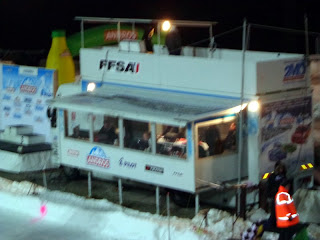Citizens of this tiny, snow-capped mountain state squeezed betweenSpain and France are looking forward with apprehension to a newyear's revolution that will see Andorrans learn what it is like topay direct taxes.
A four-year economic slump has confirmed the end of decades of dizzying growth which meant that one of smallest countries in Europecountry, perched on top of the Pyrenees, could survive mainly off a modest tariff on imports.
"What do I feel about paying taxes? Awful!" said shopassistant Samuel Díaz, a Spanish immigrant who sells cheap cigarettes and cigars to tourists. "But for the first time ever I have Andorran friends who are unemployed."
Amongst the first to pay taxes will be Joan Iglesias, whose twoshops on the busy Meritxell street of the capital, Andorra laVella, sell CDs, DVDs and videogames to Spanish visitors.
As of January he will be liable to a modest business tax of up to 10%. "I don't think the politicians know what they are doing," he said. "What I really need is for my rents to drop, so I can handle the downturn in business."
The business tax will be followed by a sales tax to be introduced in 2013. Income tax will come after that. "We haven't done thisbefore, so we don't yet know exactly how much we will bring in,"admitted finance minister Jordi Cinca.
A decade ago 12 million visited this pocket handkerchief country every year, attracted to the endless shopping malls, car dealerships and petrol stations that line its main roads.
But by last year the numbers had dropped to 8 million and – for a country that gains three quarters of its income from visitors who come to shop, ski or do both – that has brought a dramatic fall into recession.
Add in a burst housing bubble, which brought construction work to a jarring halt, and the economy has shrunk by 12% over four years.
"Until 2007 we really hadn't stopped growing for severaldecades," explained Cinca. "It was a permanent boom."
Andorrans have been shocked by the eruption of unemployment in a country where annual employment growth ran at between 2% and 16% for all but a handful of years over the past four decades.
Companies only had to start making their books available for inspection last year, so working out the size of the economy has traditionally been a matter of calculated guesswork.
Dependence
The population, officially at around 85,000, but probably 10-15,000 less – is another mystery. Many of the immigrants arebelieved to have left after losing construction jobs in recent years,but town halls have not been keen to strike them off their registers,because they are funded according to their population.Half of the country's population remains immigrant, however. Only after 20 years living and working here are they allowed to apply for nationality.
The collapse is mainly because tax-free Andorran shops now find it hard to compete with large Spanish chains that can force suppliers' prices down.
The booming businesses of the moment, as a result, are high tax goods such as cigarettes, perfume and alcohol. Pharmacies sell US-approved drugs that do not yet have EU licences. Non-prescriptionViagra, displayed in at least one chemist's window and on websites isanother sideline.
But the new changes are designed to wean Andorra off its dependence on Spanish shoppers.
Taxation, in fact, is part of a process of opening up Andorra to the world economy. It has successfully had itself removed from the OECD's list of tax havens.
This was, in part, done at the insistence of French presidentNicolas Sarkozy – who was embarrassed to find himself as one of the joint heads of state, or "co-princes", of Andorra while he publicly fumed about tax havens across the world. The other co-prince is the bishop of the nearby Spanish town of La Seu d'Urgell.
"We have gone from being a fiscal paradise to something very normal," said the prime minister, Antoni Martí. "It is a revolution, but a controlled one."
New rules will remove some of Andorra's notoriously protectionist laws. Foreign investors, currently only allowed to own 49% of a business, will be welcome. In the past some Andorrans got wealthy simply fronting companies for foreigners.
"Let's go and compete in other parts of the world, and allowothers to compete here," said foreign minister Gilbert Saboya, who sees the lack of crime as a major attraction for those wanting to set up businesses. "We are the safest country in Europe."
An association agreement to make it easier for Andorra-basedcompanies to operate within the EU is one of the government's mainaims.
At the shoe shop he opened 40 years ago, Francesc Marquez agreed it was time to start paying taxes. "Everyone else does, so why not us?" he said. "But they mustn't put them too high."
ORIGINAL : http://www.guardian.co.uk/world/2011/dec/27/andorra-financial-crisis-tax







No hay comentarios:
Publicar un comentario